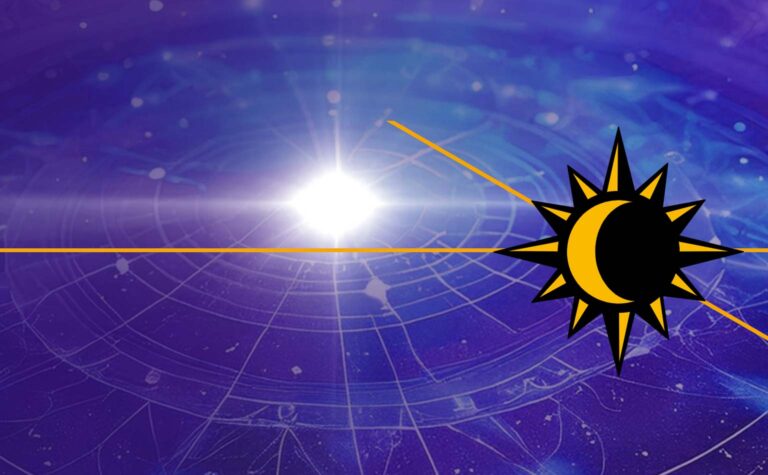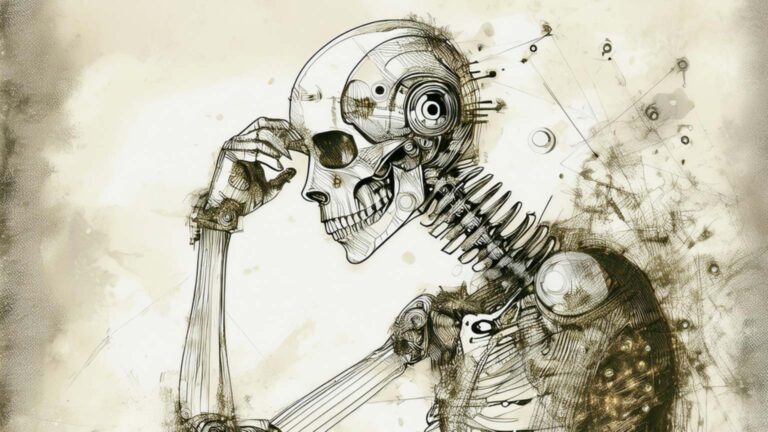It’s Professor Brian Cox who dunnit for me, in the sitting room, with his BBC series, The Wonders of the Universe.
His extraordinary programmes have fundamentally changed my understanding of God. Although I have never been a practicing Christian, I have always had a profound belief in God as an external force. By this I mean an omniscient intelligence that guides and nurtures me. My interpretation of this God-like presence is very personal, but it has given me great comfort in times of despair, and has provided a moral cornerstone for how to live my life.
My belief in a benevolent force stems from what I can only describe as a mystical experience. It happened twenty-odd years ago, on, of all places, a train. I had been working through some emotional issues, and was feeling raw and vulnerable, and in need of a break. A friend in Dorset had invited me to stay the weekend, and I was on my way there.
I can remember gazing out of the window, looking forward to seeing my friend, when suddenly it felt as if the curtains in my forehead parted, and everything else around me disappeared. I found myself ‘floating’ upwards in a kind of dusty light, which was full of sparkles, and being infused by a feeling of peace and serenity that I had never experienced before.
I then became aware of a lion-yellow colour streaming out from my left side. At the same time, I was filled with an understanding that should I dive into this stream of colour, I would be able to confront the many mistakes I had made and learn from them. There was no sense of judgement or blame, but rather a loving, wry knowing.
I was just thinking, ‘hmm, that’s seem like an interesting idea,’ when I ‘received’ a message, which told me, ‘Life is only an experience. It’s how you perceive the experience that matters.’ With that, the curtains in my forehead swung closed, and I was back on the train.
I suppose the whole thing may not have lasted more than a couple of seconds, but for many months afterwards, I found myself mourning the loss of that ultimate peace and serenity. In fact, even though it’s so many years later, I can still feel the same depth of loss as I write about it.
At the time, I interpreted this experience as an encounter with some kind of next-world energy that would greet me when I died. It was a huge comfort, and has stopped me fearing the actual moment of death. As I said to a friend, ‘If that’s what is waiting for me when my time comes, then Yes Please!’
It also made me aware of the importance of doing the best I can with who I am, and to keep developing spiritually and emotionally. I also realised that I had to start taking responsibility for everything I created, because there seemed to be some kind of spiritual reckoning which happens after death.
However, since working with Dr Peter Fenwick on a research project into end-of-life experiences, I am now convinced that spiritual reckoning is an on-going life experience, which heightens as we approach death. Psychologists and doctors have recognised that spiritual distress is caused by unresolved shame, anger, blame or resentment, or ruptured relationships which have never been healed. Our end-of-life study suggests that we are innately called to do this before we die, and become increasingly anxious when these issues are not addressed.
So it’s been quite an experience to watch Professor Brian Cox explaining how the Universe came into being, and how planet Earth itself is merely a grain of sand within our Milky Way galaxy, and that our Milky Way is one of billions of other galaxies that ebb and flow throughout the cosmos.
I realise now that my sense of a bigger external existence comes from the fact, as Professor Cox explains, that we are made up from atoms found through the Universe. The vastness of the Universe actually lives inside us, so no wonder we organically experience a force superior to human life.
But, as Professor Cox points out, in the greater scheme of things, human life with alls its failing and foibles, together with this beautiful blue planet we live on, are of very little relevance. We and our Earth merely exist because of the Big Bang that created our known Universe some 14 billion years ago.
Hearing him talk, and seeing the spectacular photographs from the Hubble Space Telescope of stars, nebulae and galaxies, I realised that the ‘God’ I believed in doesn’t exist. But, perhaps my mystical vision tapped into an unconscious archetypal energy that has evolved over the 75,000 years since our homo sapiens ancestors first walked out of Africa, and began to try to make sense of life through their creation stories.
As Carl Jung, the father of modern psychiatry said, the relationship between the conscious mind and the unconscious mind is the same as a cork (conscious mind) bobbing on a vast ocean (unconscious mind).
As I am coming to terms with the loss of my God, I am aware that my faith in some kind of existence beyond human life is still strong. I will never forget that feeling of peace and serenity which welcomed me into that other world, or how important it is to make the very best of life that I am living right now. But it doesn’t really matter what happens to me after I die, because, according to Brian Cox, I – and you – are destined to return to the same stardust that made us in the first place.
I rather like the idea.







9 comments
Joyce Hansell
Yes we have all become very clever with our investigations into how life began on this planet, yet Brian Cox cannot exlain the ‘why?’. I do believe in a creator God who is far and above our human intellect and for anyone to believe that all life on earth just ‘evolved’ beggars belief. Doctors and scientists are only just beginning to fathom how our brains work and to say that our intelligence, ability to love, empathy, creativity etc. etc. just evolved over time, well, that requires more faith than believing we are created in God’s image, after His likeness. I feel sorry for those who just rely on what scientists say in order to give some sense as to why we are here. I prefer to believe that we are the ultimate finishing touch to a unique and wonderful world that God has provided for us to inhabit and gave us the gift of free will to choose whether to respond to His message of salvation in Jesus or not. We all have a choice and we live (and die) because of that choice. I wonder how arrogant human beings will become before God puts us in our place once and for all.
JP
The Gospel according to the Big Bang says:
“In the beginning there was Nothing and Nobody.
Nothing exploded and became Everything.
Why Nothing exploded Nobody knows;
Because Nobody was there and had Nothing to do with it,
For Nothing to produce Everything must have taken a very, very, very long time
But the Second Law of Thermodynamics says:
Everything becomes more and more disordered over time.
Nothing and Nobody somehow managed to overcome this problem.
And after a very, very, very long time Everything arrived.
And it all must be true because here we are!”
Jeffrey Neis
Why do some people say that you cannot believe in both God and science ? They are not at odds with each other. Science is an extension of our human desire to know and to learn more; we are a curious lot. It would be illogical to say what God can or cannot do. Some Christians say the earth is 6,000 years old, while other say perhaps 6 million years old. Please, as a lover of both God and the scientific process, stop putting God in a box. Science is in a constant state of change, that is reflected by its very nature – observation, experimentation, new discoveries leading to new understandings. The hypocrisy becomes painfully evident, when a person says that living matter came from non-living matter. An explosion in the cosmos, leading to all living things on earth? How can that make more sense than a creative power, bigger than ourselves, at work behind the scenes?
Sue
Agreed, well said 🙂
I meant that in respect of Jeffrey Nevis comment
Sue
I meant that in respect of Jeffrey Nevis comment 😉
Dimitri
Thank you Sue for sharing your “experience”.
I’ve been searching for others with similar -genuine-“travels” as you described. I too have longed to have another “unveiling”, (was very similar to yours) To say the least, it was the most exhilirating, euphoric, all encompassing..loss for words scene, feel and experience. I remember thinking 1:”allright this answers the “i” question of self cosciousness and awareness… to a certain degree obviously, besides, was “there” only a few seconds i believe. And 2: i looked for my loved ones and they were all there and even though not physically, i felt them in a more profound way then that. A moment later i was back.
Allthough I’m not a religious person, i’ve always prayed (to A Force, A Source, sometimes used the name Ultimate Truth) for answers to those questions (amongst others). Maybe Maybe not that was a momentary gift with an answer. Either way, it brings up davdevalle’s poignant point, at least what i partly take from it, that our experience of life and in what we “saw” with if you don’t mind, spiritual eyes, both are experienced from a personable standpoint. We cannot assume or negate a personable source.
Personaly I felt in outer guidance, allthough i was in outer state. But hey, who am I to say lol.
Just thouroughly enjoyed your blog and couldnt resist adding my thoughts. I never do this. And excuse my quotation and parantheses, not much of a writer, will practice.
Cheers !
website
Wanted to drop a remark and let you know your Rss feed is not working today. I tried including it to my Google reader account and got absolutely nothing.
mbrayne
Thanks for the headsup. We’ve taken off the RSS widget, and will leave it to individuals to find their own RSS feeder… More reliable.
davdevalle
It is interesting to read about your experience. However for Cox to claim things have little relevance in the scheme of things is to misuse the term relevance. It is important to discuss which experiences you consider relevant and irrelevant and to evaluate these. However it makes little sense, or even no sense, to talk about the cosmos in terms of relevance of irrelevance these are personal evaluations. The Cosmos has nothing to ‘say’ about wha is relevant or irrelevant. What is relevant is what is relevant to a particular person and it is nothing to do with the ‘cosmos’. This is an argument used by many philosophers and scientists, eg Russell did something similar only was more nhilist than Cox. The tactic is one which suggests just as Copernicus shifted us from the geocentric to the heliocentric worldview so any such thing as a personal connection/experience to ‘God’ is egocentric and is dethroned in the grand cosmic scheme. You cannot dismiss the centrality of experience to any science. To say something is irrelevant in the grand scheme is a personal judgement. Cox may give that support to his beliefs but cosmology has nothing to offer about the reality of grief or loss of love or despair. Cosmology may give perspective to gaze at stars and wonder about time and eternity but of itself it knows nothing about love between people. Here is a different place to contemplate human relations and what is relevant and irrelevant. Cox’s rhetoric is a particular tactic used to back up his metaphysics and beliefs. Cosmological atheism does not defeat the personal relationship with life, god nature call it what you will. Complementary modes of experiencing are what the sciences explore! Love is not an illusion it can be a way to see the world, Spinoza and the intellectual love of God is just as wise a place to contemplate the universe as Cox’s atheism and with different consequences personally.